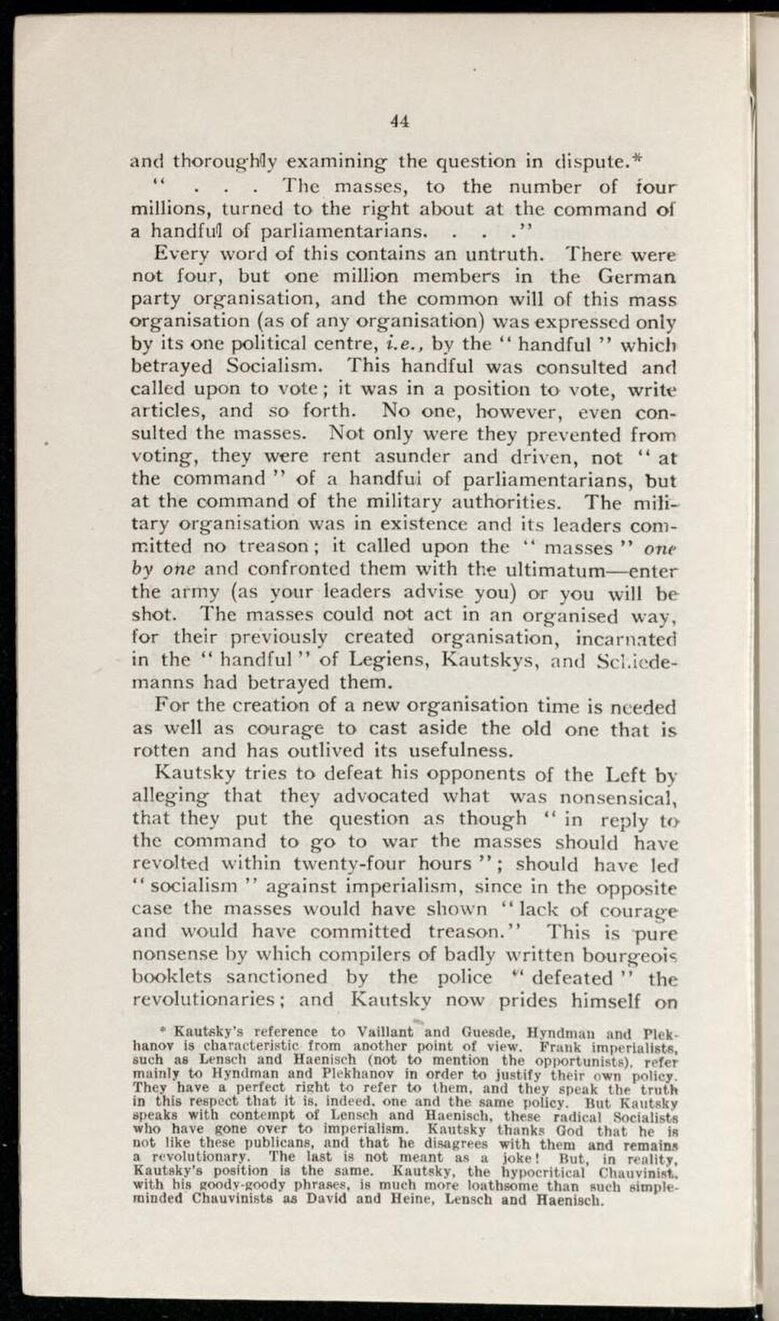44
and thoroughly examining the question in dispute.[1]
" … The masses, to the number of four millions, turned to the right about at the command of a handful of parliamentarians. …"
Every word of this contains an untruth. There were not four, but one million members in the German party organisation, and the common will of this mass organisation (as of any organisation) was expressed only by its one political centre, i.e., by the "handful" which betrayed Socialism. This handful was consulted and called upon to vote; it was in a position to vote, write articles, and so forth. No one, however, even consulted the masses. Not only were they prevented from voting, they were rent asunder and driven, not "at the command" of a handful of parliamentarians, but at the command of the military authorities. The military organisation was in existence and its leaders committed no treason; it called upon the "masses" one by one and confronted them with the ultimatum—enter the army (as your leaders advise you) or you will be shot. The masses could not act in an organised way, for their previously created organisation, incarnated in the "handful" of Legiens, Kautskys, and Schiedemanns had betrayed them.
For the creation of a new organisation time is needed as well as courage to cast aside the old one that is rotten and has outlived its usefulness.
Kautsky tries to defeat his opponents of the Left by alleging that they advocated what was nonsensical, that they put the question as though "in reply to the command to go to war the masses should have revolted within twenty-four hours"; should have led "socialism" against imperialism, since in the opposite case the masses would have shown "lack of courage and would have committed treason." This is pure nonsense by which compilers of badly written bourgeois booklets sanctioned by the police "defeated" the revolutionaries; and Kautsky now prides himself on
- ↑ Kautsky's reference to Vaillant and Guesde, Hyndman and Plekhanov is characteristic from another point of view. Frank imperialists, such as Lensch and Haenisch (not to mention the opportunists), refer mainly to Hyndman and Plekhanov in order to justify their own policy. They have a perfect right to refer to them, and they speak the truth in this respect that it is, indeed, one and the same policy. But Kautsky speaks with contempt of Lensch and Haenisch, these radical Socialists who have gone over to imperialism. Kautsky thanks God that he is not like these publicans, and that he disagrees with them and remains a revolutionary. The last is not meant as a joke! But, in reality, Kautsky's position is the same. Kautsky, the hypocritical Chauvinist, with his goody-goody phrases, is much more loathsome than such simple-minded Chauvinists as David and Heine, Lensch and Haenisch.
